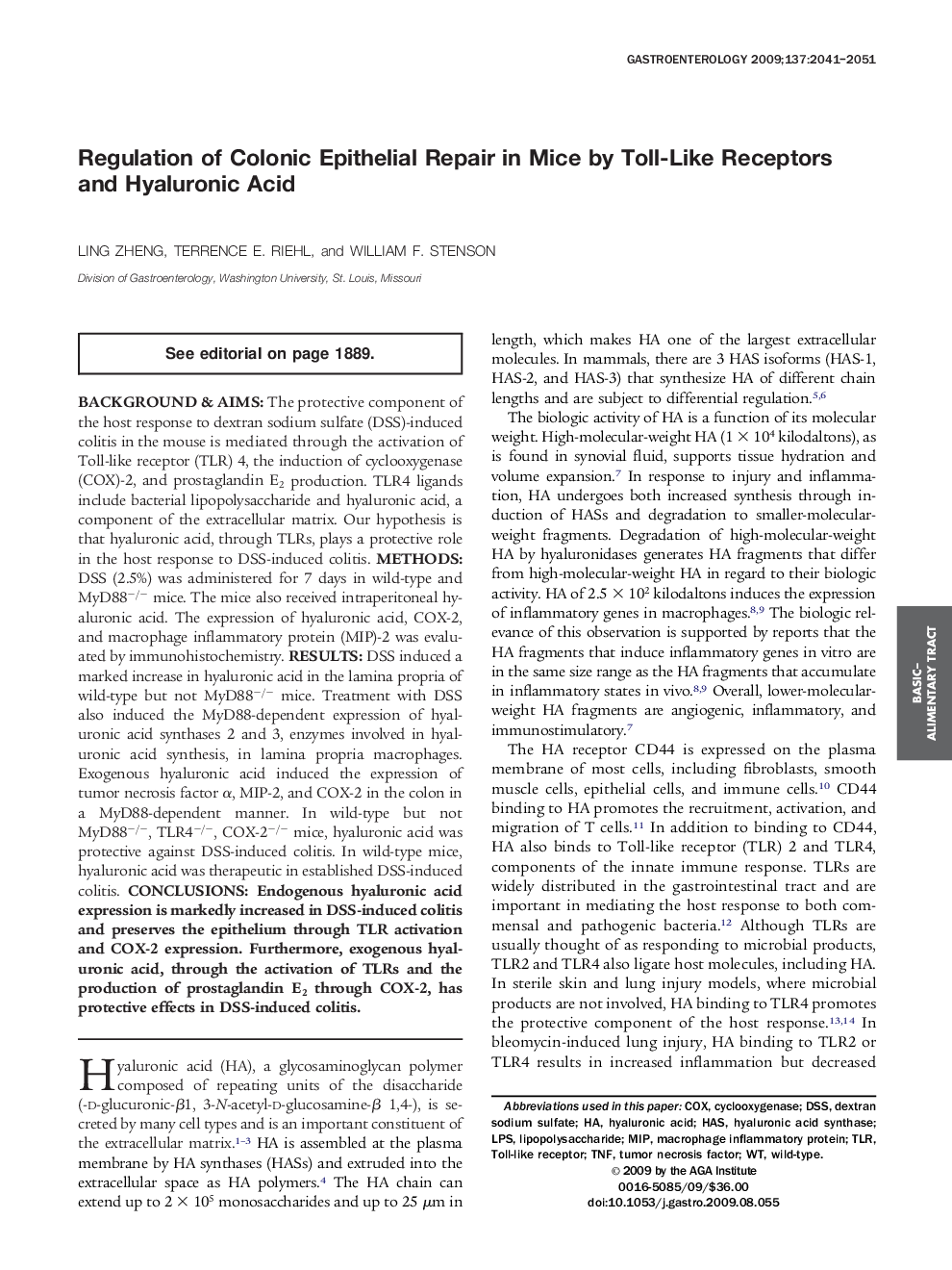| Article ID | Journal | Published Year | Pages | File Type |
|---|---|---|---|---|
| 3297109 | Gastroenterology | 2009 | 11 Pages |
Background & AimsThe protective component of the host response to dextran sodium sulfate (DSS)-induced colitis in the mouse is mediated through the activation of Toll-like receptor (TLR) 4, the induction of cyclooxygenase (COX)-2, and prostaglandin E2 production. TLR4 ligands include bacterial lipopolysaccharide and hyaluronic acid, a component of the extracellular matrix. Our hypothesis is that hyaluronic acid, through TLRs, plays a protective role in the host response to DSS-induced colitis.MethodsDSS (2.5%) was administered for 7 days in wild-type and MyD88−/− mice. The mice also received intraperitoneal hyaluronic acid. The expression of hyaluronic acid, COX-2, and macrophage inflammatory protein (MIP)-2 was evaluated by immunohistochemistry.ResultsDSS induced a marked increase in hyaluronic acid in the lamina propria of wild-type but not MyD88−/− mice. Treatment with DSS also induced the MyD88-dependent expression of hyaluronic acid synthases 2 and 3, enzymes involved in hyaluronic acid synthesis, in lamina propria macrophages. Exogenous hyaluronic acid induced the expression of tumor necrosis factor α, MIP-2, and COX-2 in the colon in a MyD88-dependent manner. In wild-type but not MyD88−/−, TLR4−/−, COX-2−/− mice, hyaluronic acid was protective against DSS-induced colitis. In wild-type mice, hyaluronic acid was therapeutic in established DSS-induced colitis.ConclusionsEndogenous hyaluronic acid expression is markedly increased in DSS-induced colitis and preserves the epithelium through TLR activation and COX-2 expression. Furthermore, exogenous hyaluronic acid, through the activation of TLRs and the production of prostaglandin E2 through COX-2, has protective effects in DSS-induced colitis.
